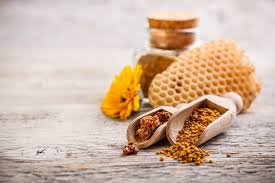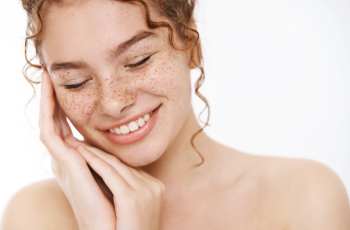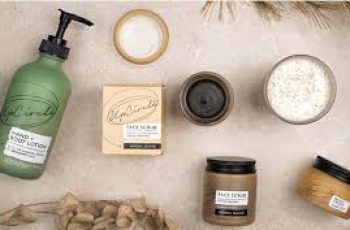
The Science of Propolis in Skin Care: Nature’s Bee-Made Miracle for Healthy, Radiant Skin
Propolis, often affectionately called “bee glue,” is a remarkable natural substance created by bees to protect and maintain the integrity of their hives.
This sticky, resinous material serves multiple critical functions within the hive, acting as a sealant to close gaps and reinforce the hive’s structure.
While also functioning as a potent antimicrobial shield to fend off bacteria, fungi, and viruses that could threaten the delicate bee colony.
Beyond its vital role in the world of bees, propolis has captured human attention for thousands of years due to its impressive medicinal and healing properties.
Its use stretches back to ancient civilizations, where it was employed for everything from wound healing to embalming.
Today, propolis has rightfully earned its place in the realm of skin care, prized for its broad-spectrum antimicrobial, anti-inflammatory, antioxidant, and regenerative properties.
It offers a natural, multi-functional approach to maintaining skin health, making it a highly sought-after ingredient in a variety of skincare formulations.
In this comprehensive guide, you’ll gain a deep understanding of what propolis actually is, how it benefits your skin at a cellular level.
Its key advantages and possible side effects, and which skin types are most likely to benefit from including propolis in their skincare routines.
If you haven’t yet discovered your Baumann Skin Type, a simple quiz is a great starting point—it ensures you tailor your skincare choices effectively to your unique skin characteristics.
What Is Propolis?
Propolis is a complex and chemically rich substance produced by honeybees through a fascinating natural process.
Bees collect resinous secretions from tree buds, sap flows, and various plant sources, then combine these sticky materials with their own saliva and beeswax to form propolis.
This blend is used to seal cracks and gaps within the hive, essentially fortifying the colony’s home against the invasion of unwanted microbes and physical damage.
But propolis is much more than a structural adhesive.
Its unique chemical composition confers strong antimicrobial, anti-inflammatory, and healing effects, which is why bees rely on it so heavily for colony health.
For humans, propolis has been a source of natural healing for millennia.
Ancient Egyptian priests used it in the embalming process, while traditional medicines across Asia, Europe, and South America incorporated propolis for wound treatment, infection control, and immune system support.
In modern skincare, propolis is extracted and refined to harness these natural protective benefits for the skin.
It’s valued for its ability to protect the skin’s surface, reduce inflammation, accelerate healing, and promote skin regeneration.
The Active Compounds in Propolis and How They Work
Propolis is a chemical cocktail, made up of dozens of bioactive components that collectively give it remarkable therapeutic effects.
Some of the most important compounds responsible for its skin benefits include:
1. Flavonoids
Flavonoids are a group of potent antioxidants found abundantly in propolis.
These molecules play a crucial role in neutralizing free radicals—unstable molecules generated by UV radiation, pollution, and other environmental stressors—that can cause oxidative damage to skin cells.
By scavenging these free radicals, flavonoids help prevent premature aging and cellular damage.
Additionally, flavonoids have strong anti-inflammatory properties that soothe irritated skin, reducing redness and swelling.
2. Phenolic Acids
Phenolic acids are another major contributor to propolis’ skin-healing powers.
They exhibit both antimicrobial and anti-inflammatory effects, helping to fend off bacteria, viruses, and fungi that can cause acne and infections, while calming inflamed skin.
These acids also support wound healing, making propolis beneficial for damaged or compromised skin.
3. Terpenes
Terpenes, aromatic compounds naturally present in many plants, add to propolis’ antimicrobial arsenal.
These compounds disrupt the cell membranes of harmful bacteria and fungi, inhibiting their growth and helping to maintain a balanced, clear skin microbiome.
4. Essential Oils
Propolis contains a variety of essential oils, which contribute to its soothing and anti-inflammatory effects. These oils reduce skin irritation and promote a calm, even complexion.
5. Amino Acids
Amino acids in propolis are vital for skin regeneration. They provide the necessary building blocks to stimulate collagen synthesis—a protein fundamental for skin elasticity and firmness.
Increased collagen production can reduce the appearance of fine lines and wrinkles, supporting a youthful skin texture.
Together, these bioactive compounds create a synergistic effect, offering protection, soothing, healing, and regeneration, making propolis an exceptionally versatile ingredient in skincare.
Key Benefits of Propolis in Skin Care
Propolis delivers an impressive range of benefits that can address many common skin concerns. Here’s a closer look at its primary advantages:
Anti-Inflammatory and Soothing Effects
Propolis’ anti-inflammatory compounds make it ideal for calming irritated, sensitive, or reactive skin.
Whether your skin is flaring up due to acne, eczema, rosacea, or environmental irritants, propolis works to reduce redness, swelling, and discomfort, promoting a more balanced and calm complexion.
Antimicrobial Protection
Thanks to its rich flavonoid and phenolic acid content, propolis acts as a natural antimicrobial agent.
This makes it an excellent ingredient for acne-prone skin, as it helps inhibit the growth of acne-causing bacteria without relying on harsh synthetic chemicals.
Moreover, its antimicrobial action helps prevent infections in minor cuts, scrapes, or other skin injuries.
Healing and Skin Regeneration
Propolis supports the skin’s natural healing processes by promoting cell regeneration and accelerating tissue repair.
It is effective in treating scars, sunburns, and other forms of skin damage, enhancing recovery and restoring skin vitality.
Anti-Aging Benefits
The potent antioxidant action of propolis protects skin cells from oxidative stress, one of the leading causes of premature aging.
This results in reduced appearance of wrinkles, improved skin elasticity, and a more radiant, youthful complexion over time.
Moisturizing and Nourishing
Propolis also contributes to skin hydration by strengthening the skin’s lipid barrier.
This helps to lock in moisture, keeping skin soft, supple, and resilient against dryness and environmental damage.
Are There Any Side Effects of Using Propolis?
For the vast majority of users, propolis is safe and well-tolerated. However, there are a few important considerations:
Bee Allergies
If you are allergic to bee products—such as bee stings, honey, royal jelly, or bee pollen—it’s crucial to avoid propolis.
Exposure can trigger allergic reactions that range from mild itching and redness to more severe swelling and anaphylaxis in rare cases.
Patch Testing
Even if you don’t have known allergies, it’s wise to patch test any propolis-containing product on a small skin area before fully incorporating it into your routine.
This helps identify any potential sensitivities or irritation.
Potential Sensitivity
Though rare, some individuals may experience mild irritation or sensitivity when using propolis.
Discontinue use if you notice any adverse reactions such as rash, burning, or excessive redness.
Propolis in Skin Care Products
The demand for natural and effective skincare ingredients has led to a rise in propolis-based products, including:
Serums and essences designed to calm inflammation and provide antioxidant protection.
Moisturizers and creams formulated to hydrate and repair the skin barrier.
Masks and ointments aimed at soothing and healing irritated or damaged skin.
One standout example is the Nuxe “Rêve de Miel” collection, which features propolis alongside other nourishing ingredients to soothe and restore the skin’s health and glow.
Which Skin Types Benefit Most from Propolis?
Propolis is a versatile ingredient suited to many skin types, but it offers particular advantages for:
Dry Skin: Its moisturizing and barrier-strengthening properties help restore hydration and soothe dryness-related irritation.
Sensitive Skin: Propolis calms redness and reduces sensitivity, helping to maintain a healthy skin barrier.
Acne-Prone Skin: Its natural antimicrobial action combats acne-causing bacteria and inflammation without harsh chemicals.
Mature Skin: Propolis supports collagen production and offers antioxidant protection, improving skin elasticity and reducing wrinkles.
While most skin types can enjoy the benefits of propolis, those with known allergies to bee products should avoid it.
Bottom Line: Should You Use Propolis in Your Skin Care?
If you seek a natural, multi-functional ingredient that offers antimicrobial defense, inflammation relief, skin regeneration, and anti-aging benefits, propolis is definitely worth considering.
This bee-derived substance has been treasured for centuries and is now supported by modern scientific research as a safe and effective skincare ingredient for most people.
However, if you have allergies to bees or bee products, steer clear to prevent adverse reactions. Always perform a patch test when trying new products, and if in doubt, consult a dermatologist.
For optimal results, understanding your unique skin type is key.
Take the Baumann Skin Type Quiz to discover your skin’s specific needs and receive personalized guidance on how to safely incorporate propolis and other beneficial ingredients into your regimen.
Would you like me to recommend some excellent propolis-based products tailored to your skin type, or provide more scientific studies backing propolis’ skin benefits? Just let me know!


